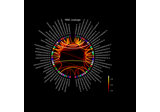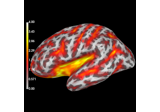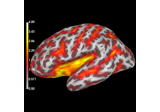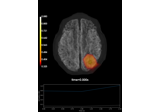mne.minimum_norm.make_inverse_resolution_matrix#
- mne.minimum_norm.make_inverse_resolution_matrix(forward, inverse_operator, method='dSPM', lambda2=0.1111111111111111, verbose=None)[source]#
Compute resolution matrix for linear inverse operator.
- Parameters
- forwardinstance of
Forward Forward Operator.
- inverse_operatorinstance of
InverseOperator Inverse operator.
- method‘MNE’ | ‘dSPM’ | ‘sLORETA’
Inverse method to use (MNE, dSPM, sLORETA).
- lambda2
float The regularisation parameter.
- verbose
bool|str|int|None Control verbosity of the logging output. If
None, use the default verbosity level. See the logging documentation andmne.verbose()for details. Should only be passed as a keyword argument.
- forwardinstance of
- Returns
- resmat:
array, shape (n_orient_inv * n_dipoles, n_orient_fwd * n_dipoles) Resolution matrix (inverse operator times forward operator). The result of applying the inverse operator to the forward operator. If source orientations are not fixed, all source components will be computed (i.e. for n_orient_inv > 1 or n_orient_fwd > 1). The columns of the resolution matrix are the point-spread functions (PSFs) and the rows are the cross-talk functions (CTFs).
- resmat:
Examples using mne.minimum_norm.make_inverse_resolution_matrix#

Visualize source leakage among labels using a circular graph

Plot point-spread functions (PSFs) and cross-talk functions (CTFs)

Compute spatial resolution metrics in source space

Compute spatial resolution metrics to compare MEG with EEG+MEG
